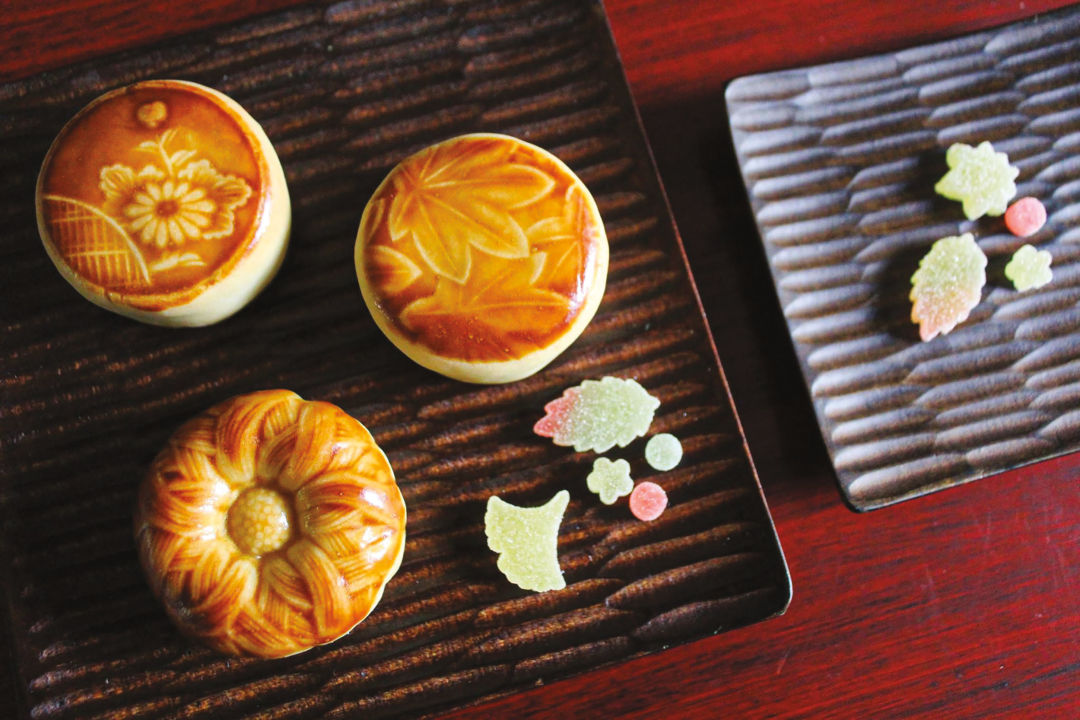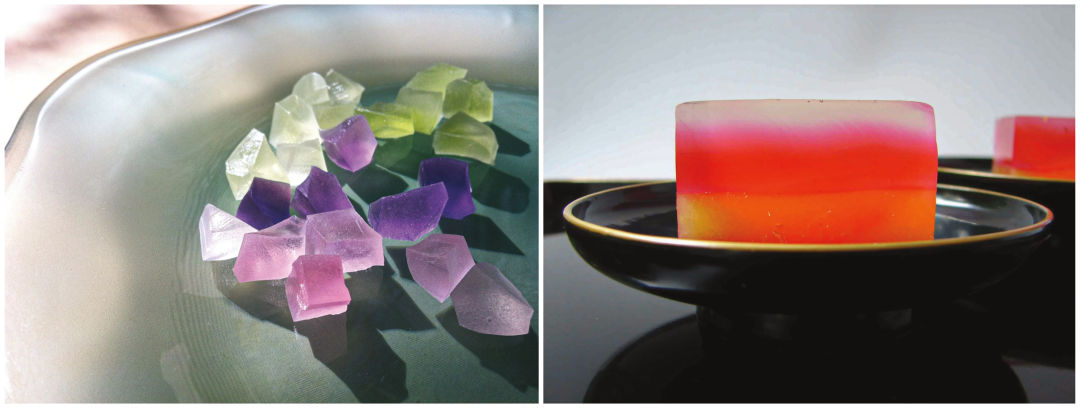One of the Country’s Few Wagashi Experts Lives in Portland

Yume’s baked manjū
Image: Courtesy Gena Renaud
In 2012, out of the blue, Gena Renaud got a call from Andrew Zimmern’s people.
The celebrity host of the Travel Channel’s Bizarre Foods America was planning an upcoming Portland episode, and her name had come up as a possible subject. The odds were against her. Renaud was not like the typical smack-talking, tattoo-slathered Portland chef loved by food-show cameras. An unknown, she worked out of her North Portland home kitchen, making intricate tea ceremony confections known as wagashi for a living—a charming realm of edible art dating back to the 17th century Edo period and little known outside of Japan. She sold her work as Yume Confections on Etsy.
It’s easy to fall under Renaud’s spell. Her dome-shaped manjū cakes glow like golden landscapes imprinted on the sun. Buttery dough is wrapped around an intense, silky-creamy, slow-cooked lima bean paste, then pressed into one of her antique wooden molds—a world of soaring dragonflies, leaping cranes, and weeping trees—then glazed in dark soy and white wine for a toasty, savory aroma. For a Westerner, it’s like meeting an enlightened Lorna Doone stuffed with a holy Oreo cream filling.
But her big reveal is an elaborate koi pond, a foot long and two inches deep, complete with teeny edible fish and candied bean “rocks” floating in turquoise-hued agar jelly. It’s like a Jell-O still-life from space.
No wonder Zimmern loved it. Renaud was in, cracking the show’s Top 5 Portland hit list alongside local supernovas like Le Pigeon and Olympia Provisions. “My friend Gena,” as he called her on air, “stands for everything that makes Portland’s food scene tick. It’s handmade and it’s excellent.”
A star was born. Well ... not exactly.

Sea glass candy and “sunrise” in agar jelly
Image: Courtesy Gena Renaud
Flash forward to 2019. Renaud still epitomizes Portland’s mythical food ethos: small batch, down the rabbit hole in pursuit of perfection, and DIY to the core. But being anointed on TV brought her no fame or fortune, though she notes wryly, “I did hear from a lot of wacky guys.” Now, middle aged, with long, gray-streaked black hair that rambles freely around petit shoulders, she still works in her home, quietly hand-tooling web orders or a few daily seasonal sweets for the Japanese Garden’s new Umami Café. Consider this: Gena Renaud is one of the few true wagashi artists in America. Most Portlanders have still never heard of her. Let’s fix this, people.
There’s no simple way to explain wagashi, which might be steamed, baked, fresh, or jellied, and always served with tea. They might be small, but each one encompasses entire philosophies. Wagashi is a way of life, an all-systems-go sensory experience, compelled by purpose and inspired by the seasons. How it feels in the hand and mouth—silky, bouncy, ethereal—is as essential as its visual joy. Taste is meant to be a team player, complementing but never overshadowing the tea. Sound matters, too, which accounts for poetic names, like Yume’s “sea glass”: rough-hewn, jewel-like candies that look like magic crystals.
“I love the idea of creating something here and gone,” she tells me one day at Umami Café, over matcha tea and a seasonal manjū. “The ephemeral nature, the emphasis on quality, the discipline of making things with your hands.” It takes her 13 hours to make the manjū bean paste from scratch, just one element in a treat with many components and techniques. It takes us a mere 30 minutes to destroy them.
“Remember the slow food movement?” asks Renaud. “This is it.” Perhaps that is why too few people make wagashi: the investment in learning and executing is enormous.
“I was kind of shocked to see someone making wagashi here, at this level” says T Project owner Teri Gelber, a tea-blending fanatic who hosts occasional Yume pop-ups at her respected Portland tea shop. “Even in Japan, it’s such a guarded craft and tradition. It’s not like putting some chocolate chip cookie batter in the oven.” Renaud, says Gelber, would “100 percent hold her own with Tokyo’s best wagashi.”
What drives her? “I had a dream, and then it came true,” she says. “Beyond my wildest fantasy.” Once a graphic artist, she wanted to make something with her hands, on her own terms, with care and attention, while honoring her Japanese mother who adopted her as a child in Korea. "Did I mention yume means 'dream' in Japanese?" Humbling. For custom orders, visit yumeconfections.com
T-Project will host a Wagashi Ocha pop-up with Yume Confections February 8, featuring single garden Japanese teas and wagashi to sample or buy, 1–4 p.m. at 723 NW 18th Ave. Tickets are $42, which include three confection courses served with Japanese tea and ceremonial matcha. Reservations at 503-327-3110




